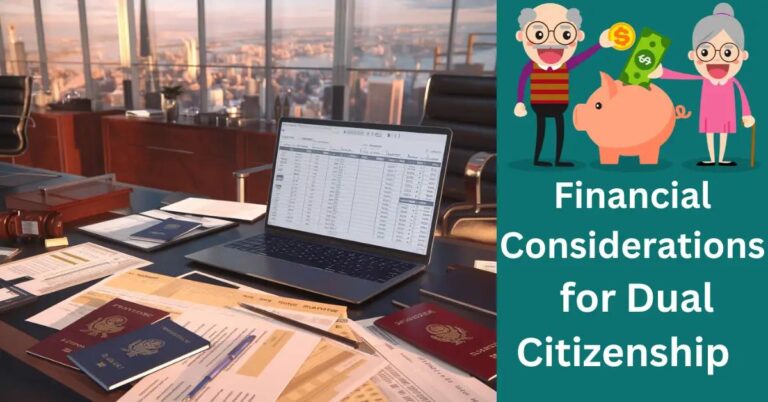TL;DR:
- Retiring abroad often requires understanding tax residency, as it determines where and how you pay taxes.
- Pensions may be taxed in your new country and potentially by the U.S.; treaties can prevent double taxation.
- Social Security benefits typically aren't taxed by other countries, but always confirm with a professional.
- Panama, Costa Rica, and Portugal are tax-friendly for retirees, with no taxes on foreign income or pensions.
- Use strategies like the foreign earned income exclusion and smart withdrawal timing to minimize tax liability.
- U.S. citizens must report global income, including foreign pensions, to the IRS, but treaties may ease the tax burden.
- Stay informed about estate, VAT, and sales taxes abroad, as well as exchange rate impacts. Consult a tax expert for guidance.
Saving on taxes while retired overseas is not just possible—it's critical to financial joy. How do you navigate foreign taxes and residency? Dive into strategies, countries, and policies that help ease the tax burden. From understanding tax treaties to utilizing tax-efficient withdrawal methods, we'll guide you. Explore which countries offer the best tax relief, and learn how your pension affects your U.S. taxes. Let's maximize your retirement bliss!
How Do Taxes Work if You Retire Abroad?
Does living abroad change how you pay taxes? Yes, it does. I want to explain it better for you. When you retire overseas, you must figure out your tax home. It can change where and how you pay taxes. Some countries base taxes on residency, while others on your citizenship. In countries using residency, living there might mean paying local taxes. Keep this in mind: your tax home decides how foreign taxes work for you.
Now, do you pay tax on your pension if you live abroad? Often, yes. The pension might still be taxed even if you live in another country. However, it depends on the country and its tax rules. Some places tax pensions twice unless they have a deal with the U.S. Most agreements aim to prevent double taxation. These treaties help manage tax whether the foreign pension income is taxable in the U.S.
Think of Social Security benefits, for example. Most countries don't tax U.S. Social Security, but you need to confirm with a tax advisor. Understand tax treaties between the U.S. and your new country. To avoid overpaying, find out if the treaty covers your specific needs.
In some cases, determining tax residency affects everything. Your residency might change income tax responsibilities. They can include submitting tax forms both in the U.S. and abroad. Therefore, knowing about local tax obligations is crucial for peaceful retired living.
Remember, when retiring overseas, the key is understanding foreign taxes and the tax implications of retiring abroad. Proper planning helps you save more and pay taxes correctly. Whether you're asking about residency and taxation or how various retiree funds get taxed, prioritize learning these tax basics first. This knowledge will guide your next steps smoothly when retiring in a foreign land.
How do taxes work if you retire abroad?
When you retire abroad, understanding foreign taxes can be tricky. Your tax situation mainly depends on your tax residency status. Tax residency affects where and what types of taxes you pay. Each country has its own rules. Some countries treat you as a resident if you live there for over 183 days a year. Becoming a tax resident often means you owe income taxes there.
You might wonder, "How do taxes work if you retire abroad?" Here’s the short answer: It depends on your residency. Many countries tax residents on worldwide income. This means income from any country can be taxed. Non-residents often pay tax only on income earned within that country.
Pension taxation is another puzzle. Do you pay tax on pension if you live abroad? Typically, yes, but the amount varies. Some countries tax pensions only from local sources. Others tax all pension income, no matter where it's from. You must check both your home country's and your new country's rules.
Social Security benefits also face tax implications. Some countries have agreements with the U.S. that impact taxes on these benefits. These pacts aim to prevent having to pay tax twice on the same income. Evaluating these agreements can save you money. The Internal Revenue Service (IRS) provides guidance on how this works.
Tax treaties and double taxation agreements play a key role. These treaties help decide who can tax your income. Many treaties reduce double taxation, making it easier for retirees. Carefully examining these treaties can prepare you for less tax surprise. It's crucial to consult tax professionals with expertise in these agreements. Listening to their advice helps ensure you meet your obligations without overpaying.
Which countries offer the most tax-friendly options for retirees?
Finding a country that does not tax U.S. Social Security benefits is a great start. Here are some tax-friendly countries for retirees, especially those with low or no taxes on foreign pensions. In particular, Panama, Costa Rica, and Portugal shine. They do not tax foreign income, including Social Security, making them top picks.
Territorial tax systems are also worth considering. These systems tax only the income earned domestically. For example, Thailand and Malaysia adhere to this model. If your income comes mainly from abroad, you may not pay local taxes at all.
Evaluating countries with no taxation on foreign pensions is another crucial factor. Countries like Malaysia and New Zealand offer enticing options. They typically do not tax retirement income sourced from abroad.
Additionally, it's smart to look at countries with bilateral agreements on Social Security tax exemptions. Countries like Canada, Australia, and Germany have such agreements to prevent double taxation. These agreements help ensure you're not paying taxes on the same income twice.
Meanwhile, countries with low or no income tax for retirees can drastically lower your tax bill. For instance, the Bahamas and Bermuda have no income tax at all. Though the cost of living can be high, the tax savings might balance it out.
Check tax-free retirement countries before making a move. Each has unique tax laws and benefits that could fit your needs. Remember, the lowest tax isn’t always the best choice. Consider cost of living, healthcare options, and quality of life to make an informed decision. Plan wisely, and you can enjoy a fulfilling retirement with minimized taxes.
What Strategies Can Retirees Use to Minimize Tax Liability Abroad?
You might wonder, "How can I save on taxes when retired?" The answer is using smart strategies. First, leverage the foreign earned income exclusion. It helps to reduce taxable income from foreign sources. Retirees can exclude a part of their earnings, thus lowering tax bills. It's crucial to understand how to use it effectively. Look into its rules and limits.
Next, think about tax-efficient withdrawal strategies. Manage the timing and amount you take from retirement accounts. This can help reduce your overall taxable income. Combining withdrawals with tax brackets keeps taxes low. Check annual tax rules to see the best way to do this.
Third, take advantage of local tax credits and deductions. Many countries offer tax benefits to retirees. These can include deductions for medical expenses or housing. Always research what you can apply for in your host country. Understand their tax system and benefits for residents.
A smart move is leveraging offshore banking. Offshore accounts might help save on taxes with interest earnings. Be cautious and ensure they're legal and transparent. Proper use of offshore banking offers tax advantages but requires careful planning.
Staying compliant with tax regulations is vital. Keep up with U.S. and local tax laws. This helps avoid penalties and ensures you're not missing any benefits. Hire a tax expert familiar with international tax rules. Remember, failing to stay updated can cost you.
In summary, there are many ways to cut tax costs abroad. Use exclusions, smart withdrawals, and local credits to your benefit. Stay informed and adhere to all tax laws to keep your savings intact.
How Does Overseas Pension Income Affect U.S. Taxes?
“Is overseas pension taxable in the USA?” The answer is yes, generally. U.S. citizens and residents must report global income, including overseas pensions, to the IRS. Let’s dive into how pension taxation affects your U.S. taxes.
First, understand how U.S. tax laws manage foreign income. The U.S. employs a tax system that mandates reporting of worldwide income. This means your overseas pension cannot be ignored when filing your taxes.
Guidelines for taxation can vary, but the basic principle remains: most overseas pensions are taxable. Considerations of tax treaties between the U.S. and other countries might affect the taxation. Some treaties grant reduced tax rates or avoidance of double taxation. Check if your pension falls under such treaties to ease your tax burden.
Now, fit this into the IRS’s reporting requirements. You must report any overseas pension income on your U.S. tax return using various forms. The usual form is Form 1040, but additional forms might apply based on your situation.
Understanding and applying international tax planning strategies can help. Strategic use of tax credits, exclusions, or deductions might mitigate your taxes. These strategies require careful understanding of both U.S. and the host country’s tax rules. A tax professional experienced in international tax planning can be beneficial.
Also, be aware of the impact of different countries' tax policies on your U.S. tax obligations. Some countries tax pensions at the source, affecting the net amount you report to the IRS. Identify these policies to avoid surprises during tax season.
Finally, stay updated on changes in tax laws, as they can affect overseas pension taxation rules. Reliable resources like the IRS website offer guidance, or consult a tax expert for personalized advice. Keeping informed keeps your tax planning effective and your stress levels low.
What other tax considerations should expat retirees be aware of?
Yes, you may pay taxes on Social Security abroad. It depends on the tax treaty between the U.S. and your chosen country. If you live in a treaty country, you might avoid double taxation. But it is crucial to check each country’s rules.
Estate taxes are another key concern. Where you reside or have assets can affect your estate tax obligations. Each country has its rules, so consulting a local tax expert is wise. Planning for these taxes keeps your estate secure for your heirs.
Currency exchange fluctuations can impact your tax obligations. A strong dollar compared to local currency may change how much tax you “lose” when exchanging money. It can benefit or hurt your finances, depending on trends.
VAT and sales taxes are important for day-to-day expenses. These taxes vary across countries. They often affect goods and services, so be mindful when budgeting. Knowing local VAT laws helps cut costs.
Social Security taxes do not vanish when you cross borders. Many retirees still face U.S. taxes on these benefits unless a treaty applies. Some countries may tax them too. Careful planning and understanding of the policies in both countries is needed.
Legal and financial planning ensures smooth living abroad. Tax laws change, so staying updated prevents surprises. Professional advice can assist you in making informed decisions. This helps in adapting to the tax rules of your new home.
Navigating tax laws abroad involves understanding different aspects like estate planning, currency exchange, and local sales taxes. Each point requires careful study and expert guidance. The key is to know what is required in both the U.S. and your new country.
Conclusion
Navigating taxes while retiring abroad can be tricky. You need to grasp tax residency, income tax across countries, and understand how foreign pensions are taxed. Don't forget Social Security benefits and using tax treaties to avoid double taxation. Choosing a tax-friendly country can lighten the tax load. Use smart tax strategies to keep more of your money. Always follow tax rules both locally and internationally. With planning, you can enjoy retirement without tax worries.







